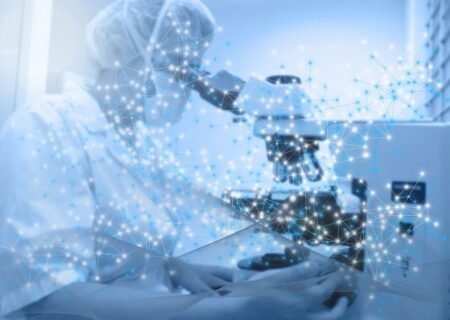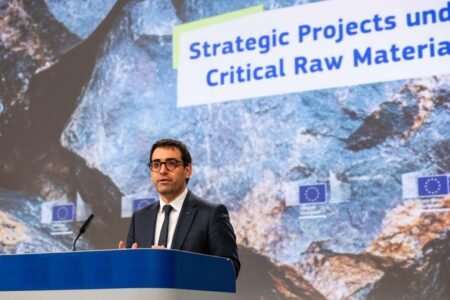Some of the world’s top neurodegenerative disease experts gathered in Stockholm, Sweden on 15 April to start working on a pan-European research agenda that will guide the work of the new Joint Programme on Neurodegenerative Diseases (JPND). The JPND is the first Joint Programming initiative to get underway, and its launch marks a step change in the way research is funded and coordinated in Europe.
Currently, just 15% of public research funds in the EU are administered at the European level; the remaining 85% is handed out through numerous national programmes. Although many of these national schemes share much in common, there is hardly any coordination between them. The aim of Joint Programming is to link up national schemes tackling issues that are of European or global importance. By pooling resources, the programmes will reduce duplication and make research more efficient. Countries join the programmes on an entirely voluntary basis; the European Commission’s role is to facilitate and coordinate activities.
Alzheimer’s and other neurodegenerative diseases form the focus of the first Joint Programming scheme, and 24 European countries have already signed up to the initiative. Treating neurodegenerative diseases already costs European health services some EUR 72 billion annually. There are few treatments for these conditions and those that are available tend to treat the symptoms rather than the underlying cause. Many of these diseases are linked to age, and the proportion of the European population aged over 65 is likely to rise to 25% by 2030 (from 16% today). The incidence of these conditions, as well as the social and financial costs of treating them, is therefore likely to rise in the coming years.
The aim of the JPND is to rapidly enhance our understanding of the causes of neurodegenerative diseases. As well as providing doctors with tools to diagnose and treat these conditions from the earliest stages, the JPND should also result in better medical and social care systems for both patients and their carers.
The JPND’s Management Board is already in place, and the Scientific Advisory Board, which comprises 15 experts from the fields of basic, clinical and social/healthcare research, will meet for the first time in Stockholm.
As well as starting work on the preparation of short-, medium- and long-term research agendas, the Scientific Advisory Board will also elect a chair and vice-chair in the Swedish capital city. Management Board Chair Professor Philippe Amouyel of the University Hospital of Lille, France hopes that his colleagues in the Scientific Advisory Board will come up with a small number of major topics before the end of 2010. The full research agenda should be ready in 2011.
Professor Amouyel expects the agenda to be like a menu; countries participating in the JPND will pick items of interest to them and decide on the best way of coordinating their activities in that area. ‘Once a priority has been defined and chosen, the first thing is to see what already exists,’ Professor Amouyel told CORDIS News.
In some cases, existing initiatives may be linked up, while other topics may require the establishment of new initiatives. Joint calls for proposals may be issued, and Professor Amouyel believes that some countries could be willing to fund researchers from other countries. ‘Everything is open and possible,’ he said.
‘Success relies on the shared view that pooling knowledge, infrastructure, funding calls, as well as creating critical mass with coherent, multidisciplinary approaches, will deliver the best scientific objectives and answers,’ he added. ‘By doing this we will optimise research investment in neurodegenerative disease across Europe.’
‘Thanks to this Joint Programme, the best European medical researchers will be working together and pooling resources to help the millions of people who suffer from Alzheimer’s and other neurodegenerative diseases,’ commented European Commissioner for Research, Innovation and Science Máire Geoghegan-Quinn.
‘By making research more efficient and avoiding duplication of work, the Joint Programme will increase the prospects of real progress in preventing and treating these diseases. The lessons learned from this Joint Programme will then be used to inform research efforts in other areas.’
The JPND is viewed as a kind of pilot for Joint Programming. Further schemes are already in the pipeline, and Professor Amouyel explained that he and his team were already in communication with people working on other Joint Programming schemes. ‘We are already transferring information on ways of working, organising ourselves and identifying topics,’ he noted.
For more information, please visit:
Joint Programme on Neurodegenerative Disease (JPND)
Source: Community R&D Information Service (CORDIS)






